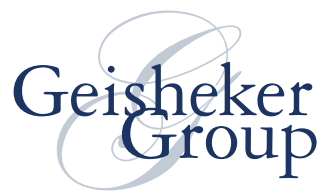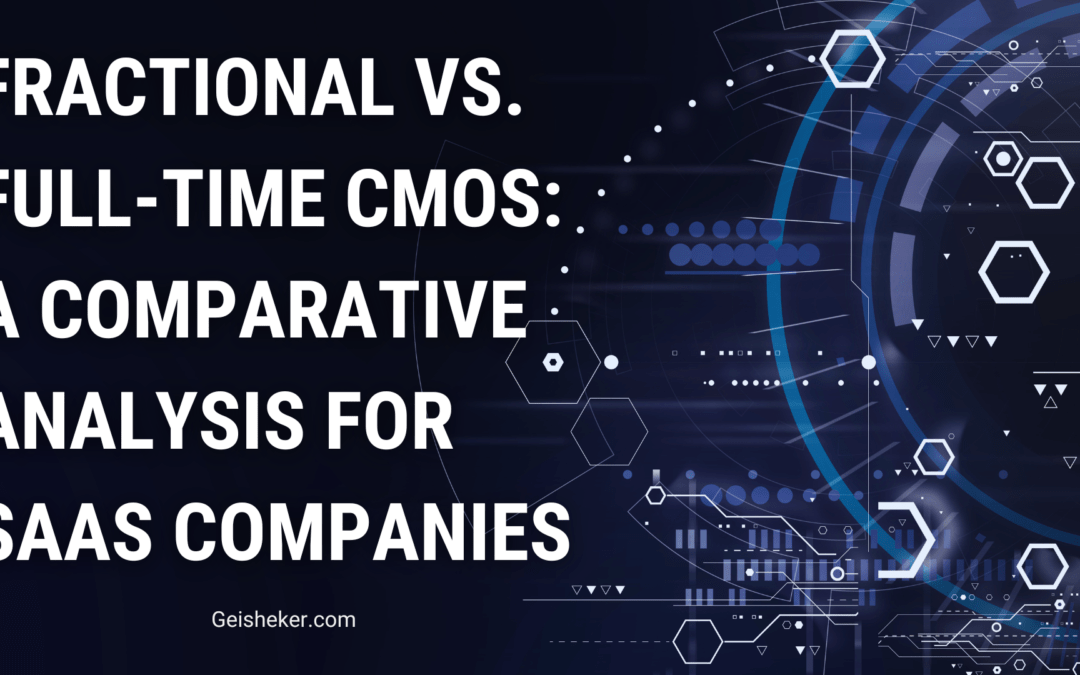The Role of the CMO in SaaS Companies
The role of the CMO (Chief Marketing Officer) in SaaS (software as a service) companies has become increasingly important over the past decade. As more businesses move to subscription-based software models, there is greater emphasis on marketing and sales to drive customer acquisition and retention. An effective CMO can make a significant impact by defining the company’s positioning and messaging, building out digital marketing capabilities, overseeing creative campaigns, guiding product marketing, and measuring performance.
For many early-stage SaaS startups, hiring a full-time CMO is not viable given limited resources. This is where fractional CMOs can provide value. Fractional CMOs are experienced marketing executives who work on a part-time, outsourced basis across multiple clients. They provide strategic direction and specialized expertise without requiring a full-time salary commitment.
As a SaaS company matures, the question becomes whether to transition to a dedicated, in-house CMO or maintain a more flexible fractional arrangement. There are tradeoffs to consider around cost, availability, industry specialization, and integration with company culture.
Cost Comparison
One of the biggest differences between fractional and full-time CMOs is cost. Highly experienced fractional CMOs typically charge between $5,000 to $25,000 per month for part-time work of 20-50 hours a month. Their fees are based on the scope of responsibilities, level of seniority, and the vertical expertise required. Agreements are flexible and billing is usage-based, allowing spending to scale up or down.
A full-time CMO salary ranges from $200,000 at early-stage startups to over $500,000 plus equity for CMOs at growth-stage companies. Additional compensation through bonuses and stock options also need to be factored in. When comparing the true cost, a fractional CMO allows a SaaS firm to access senior-level talent at a fraction of the price of a salaried executive. The lower risk and overhead make it easier to justify the investment for companies with under $10 million in revenue.
Availability and Responsiveness
Fractional CMOs divide their time across a select number of retainers, enabling them to be highly responsive despite not working full-time hours. They are accessible for impromptu strategy sessions in between scheduled meetings and provide quick turnarounds on urgent requests. Some fractional CMOs even offer to be “on-call” during off-hours or weekends should an emergency arise. This level of timely responsiveness would be challenging for an in-house CMO juggling numerous internal obligations.
In contrast, full-time CMOs dedicate their entire work week to one company. They are completely immersed in the day-to-day operations and needs of the marketing team. Internal stakeholders have more organic, face-to-face access for aligning on collaborative projects compared to a fractional CMO who interacts predominantly through virtual meetings. Full-time CMOs also have more availability to attend company events, town halls, and offsite meetings. The always-on, in-house presence provides assurance that marketing priorities never go neglected.
Industry Specialization
Most SaaS fractional CMOs possess deep industry experience from past executive roles. They target SaaS clients within verticals where they have existing domain expertise that translates to more immediate value-add. For example, a fractional CMO with 15 years focused on B2B fintech and cybersecurity SaaS can quickly validate positioning, advise on which conferences to sponsor, provide buyer persona insights, and guide messaging framework development. Without needing ramp-up time, they make an impact from day one.
In contrast, full-time CMOs may not have previous exposure to a niche vertical or emerging sector. Early-stage SaaS firms must often make tradeoffs when hiring a generalist CMO based on broader SaaS qualifications while lacking niche domain experience. For targeted industry knowledge and tactical activation, fractional CMOs carry advantages over full-time hires starting from scratch. However, a motivated full-time CMO will dedicate themselves to coming up the curve through extensive research and partnerships.
Cultural Integration
Full-time CMOs become ingrained team members through daily presence in a company office. They directly interface with other department leaders during regular stand-ups, meetings, and events. This fosters better cultural assimilation. Developing personal rapport and camaraderie leads to more aligned, productive working relationships. Further context gained from water cooler conversations and informal gatherings enables insights that bolster strategic decision-making.
The remote, intermittent nature of fractional CMOs limits their cultural immersion. Most engagement occurs through structured status calls rather than organic interactions. This can pose challenges in forming productive partnerships beyond the marketing function. However, some fractional CMOs request opportunities to attend company offsites or milestone events to nurture stronger connections. Those instincts reveal their commitment to treating the client like more than just another retainer. Still, a full-time CMO enjoys the inherent advantages of being on location to assimilate with company values and norms. They become part of the fabric guiding decisions.
Marketing Strategy Ownership
Fractional CMOs juggle multiple clients simultaneously by design. They therefore manage competing priorities spread across different SaaS organizations. Strategic frameworks get tailored to each business and then passed off for execution by others. The fractional model lends itself to high-level direction setting rather than hands-on tactical ownership. This allows fractional CMOs to overlay their strategic perspective without assuming full operating responsibility.
In contrast, full-time CMOs own both strategy development and execution. All downstream marketing campaigns and programs reflect their singular strategic vision for the SaaS company. Full-time CMOs guide daily decisions while tracking performance first-hand. They are fully accountable for hitting growth targets, not just advising how to achieve them. This total focus on one firm’s objectives drives greater personal investment into long-term success. Fractional CMOs act as advisors while full-time CMOs are doers, leading the charge on all aspects of strategy.
Key Takeaways
In summary, deciding between a fractional or full-time SaaS CMO comes down to a set of tradeoffs:
Fractional CMOs provide experienced marketing leadership at a lower cost. They offer niche industry specialization and responsive bandwidth across a portfolio of clients. However, fractional CMOs are not fully immersed into company culture and their split attention can lead to inconsistent tactical execution.
Full-time CMOs require a sizable salary commitment but provide complete focus on a single SaaS organization. They assimilate into the fabric of company culture while translating strategy into owned execution. Yet, full-time CMOs may lack targeted vertical expertise requiring ramp-up time to add specialized value.
Here are some best practices when assessing fractional versus full-time CMO models:
- Leverage fractional CMOs to establish foundational positioning, messaging, and demand gen for seed to Series A stages
- Transition to a full-time CMO once approaching $10M+ revenue scale needing dedicated alignment
- Start full-time CMOs in interim project-based gigs to assess mutual fit before salary commitments
- Maintain fractional specialist support for niche initiatives despite having a generalist full-time CMO
- Set clear boundaries on the scope of influence for fractional CMOs to prevent overreach
The needs of each SaaS business differ depending on maturity, budget, and growth trajectory. Evaluate fractional and full-time CMO models across the expected impact, available spend, and desired involvement fit. Be clear in defining the responsibilities under each model and who owns final decision rights. With thoughtful assessments of the tradeoffs, SaaS firms can leverage either fractional or full-time chief marketers as catalysts for scaling success.
Hire a Leading B2B SaaS Fractional CMO
If your company needs a B2B SaaS fractional CMO, consider working with Peter Geisheker. Peter has been providing Fractional CMO services for over 20 years and has expertise in growth tactics and conversion optimization. View Peter’s SaaS Fractional CMO case studies.


